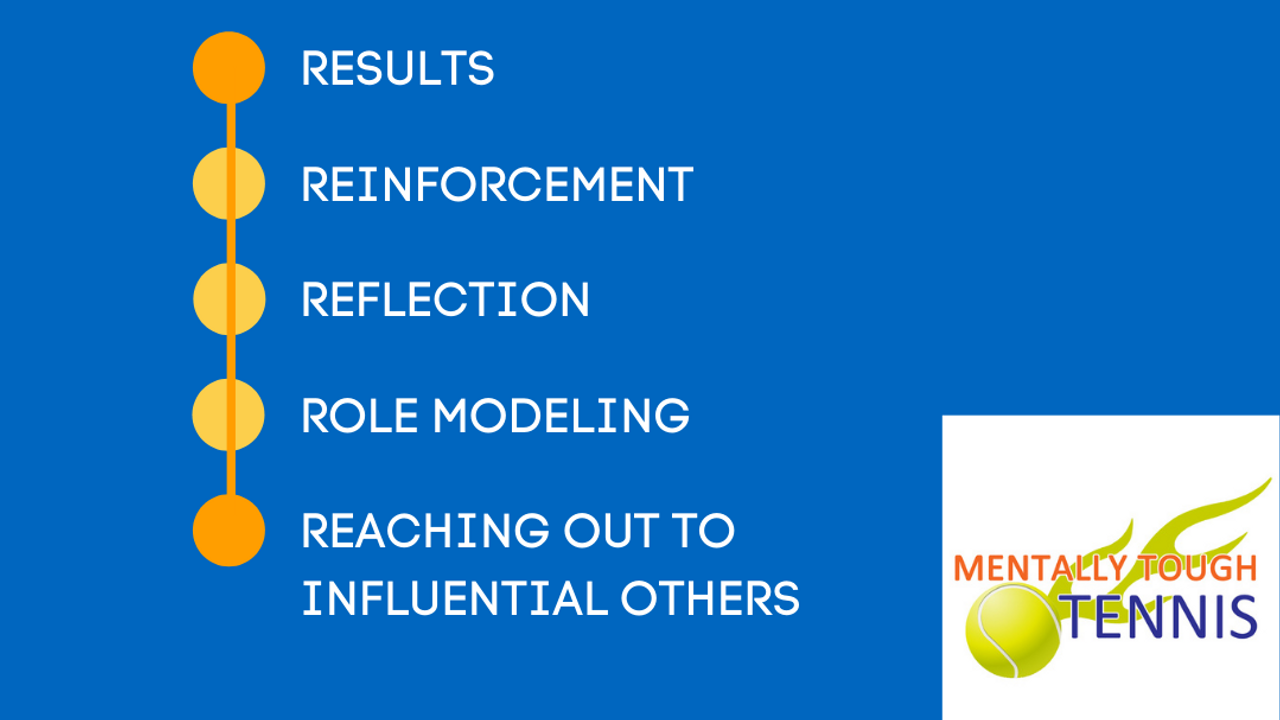WELCOME TO OUR FREE ARTICLES, VIDEOS, AND RESOURCES
Would you like us to send our best free tips, tools, and special offers straight to your inbox?
How Medvedev is Becoming a Mental Master
What a match!
Each player winning 182 points...
But it was Medvedev who found the finish line.
Please take a few minutes to listen to his post match reflections (he was incredibly candid) and my thoughts on the vital learning lesson we can take from it.
Anthony
The Importance of Nadal's Post Aussie Open Match Comments
I hope you had the chance to enjoy the festive season!
I spent a great couple of weeks with family before a busy start to the year working at the Aussie Open.
It was also great to see my colleague at MTT Pat Flynn experiencing being a member of the winning Canadian ATP Cup Team in Sydney.
It's sure great to be back in the thick of things in 2022 :-)
With that in mind, let's start this year's communications with what I believe is one of the most important understandings we can achieve when trying to respond well to difficult situations.
And it comes from a simple Aussie Open post match comment from Rafa Nadal. He said:
"Everybody has doubts, everybody feels frustrations....the most important thing is how you react"
So why are these comments so vital?
Well, usually when we think about the word 'acceptance' we are considering the skill of overt/external acceptance.
An example of this is when a player makes a mistake and 'accepts' the mistake and move on to the next point....
The 5 R’s to Positively Shape Players’ Mental Experiences Over Time

If you've been following my communications for a while you'll be aware that I believe trying to control unintentional difficult thoughts (e.g., outcome thoughts, negative thinking) and emotions (anxiety, frustration) during matches is detrimental to long term mental toughness.
What we do want to do however is communicate (if you're a coach or parent), and reflect in ways that lead to more helpful mental experiences over time.
Here are 5 ways we can do this:
1.) Results
The most powerful way to improve internal experiences in a given performance situation when encountered in the future is to commit to desired actions now.
For example, when a player performs well while experiencing difficult internal states, this positive performance outcome will likely lead to more adaptive interpretations of that situation when experienced again.
The player will also implicitly learn from this experience that desirable internal states are not required for effective performance, therefore ...
Why Osaka is Only Feeling Relief When She Wins
Naomi Osaka reports that she is only feeling relief when she wins matches recently.
I took a few minutes to explain why this occurs...
The Curious Case of Ash Barty's Recent Grand Slam Record
As a massive Ash Barty fan watching her lose from 5-2 serving in the 3rd set was hard to watch. And it got me reflecting on Ash's Grand Slam record during the last couple of years which is both amazing and curious.
On one hand she and Osaka have been the best Slam performers in women's tennis which is simply incredible considering that at one point Ash had walked away from the game with no particular intention to return. But on the other, Ash seems to have left several potential Slam victories on the table due to losing matches that she was in full control of.
The 2020 Aussie open semi-final loss to Kenin in which she had a couple of set points in the first set comes to mind. This year's Aussie open quarter final where she was dominating Muchova a set and a break. And yesterday's loss to when leading 5-2 serving in the third against Rogers.
And even in the 2 Grand Slams she's won, Ash had to make amazing recoveries from getting tight and losing leads during crucial ...
Q + A: The Most Common Coach/Parent Communication Mistake
Recently during a Workshop with Vida Tennis, coach Kane Dewhurst asked me a question that led to me discussing what I believe is the most common and detrimental coach/parent communication in all of tennis...
Watch the video to see my answer :-)
Have a great day,
Anthony
3 Simple But Powerful Ways Players Can Develop Mental Toughness...

1.) Practice Improving Attention Skills…
The 1stbarrier to mental toughness is when our concentration lapses.
Players can lose concentration during matches when they get distracted by external causes (e.g., sounds), or also when their naturally wandering minds start thinking about things not to do with the match.
It’s quite amazing that although being able to aim and maintain attention on a helpful performance target is such a foundational requirement to successful performance…
And although we are regularly told to “Pay attention” during our developmental years, we rarely actually formally practice it.
This is a little like expecting someone to get fit without doing fitness training!
Here is a super simple way that players can develop attention skills during the daily activity of teeth cleaning:
Step 1.) The idea is to see how long we can aim and maintain our attention on a sensory aspect of the activity…
So the sound of the toothbrush, or the feel of the brush on our t...
Ash Barty and the Independent Athlete Myth...
Watching Ash Barty's journey to becoming Wimbledon champion was an amazing example of the crucial nature of having the incredible support and guidance from a fantastic team and family.
The trend of the very best players in the world building bigger, more long term, support teams contradicts the theme in player development involving the goal of creating independent players.
Unfortunately, the goal of player independence and complete responsibility underestimates the importance of the support teams' relationship with developing players, and is sometimes designed to absolve those not suitably skilled to build effective relationships from responsibility in player development.
And brain research has shown that it’s not possible to create an independent player anyway....
Since most players are not in a position to have a support team, let's focus here on the coach-player relationship.
So how can we balance players’ best interests by simultaneously encouraging the coach-player re...
One Crucial Lesson From Federer's Wimbledon Loss...
Almost universally, coaches and parents report to me their advice to players regarding competing effectively includes the aim to control uninvited match related thoughts and feelings like nerves, frustration, and helplessness. For example, statements like: "Believe in yourself", "Stay calm", "Don't worry about the outcome", "Accept errors", Don't get frustrated at the wind", etc, etc.
While this is well-intentioned and sensible on the surface, a crucial question to reflect on in trying to help players improve is this:
How well does it work?
For example, when Roger Federer went down a break in the third set against Hurkacz, do you think his dominant thoughts and feelings were more reflective of self-belief or helplessness.
He let us know in the press conference that he was feeling helpless: "Well, in the last few games I could feel that I wasn't going to come back".
And I strongly suspect that based on the situation he was in, and the point he is currently at in his career,...
Krejcikova and Djokovic's Negative French Open Thinking
